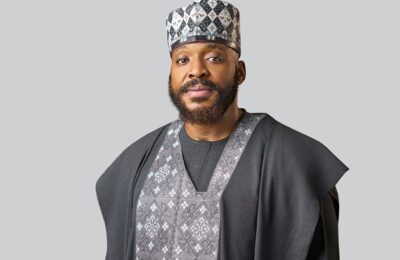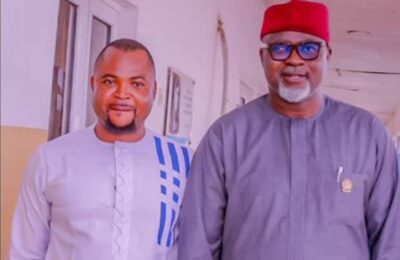The Igala nation stands at the threshold of destiny, its ancient heritage whispering a solemn call for political, economic, and social re-awakening. Once a people renowned for courage, justice, and communal honour, the Igala world now contends with the silent weight of marginalization, its voice too often muted in the orchestra of Nigeria’s political discourse. Yet the echoes of history and the sanctity of culture offer a pathway—a road to reform that must be walked with dignity, unity, and an unyielding sense of purpose.
At the heart of this renaissance lies the long-overdue creation of Okura State, not as a mere political prize but as a sacred mandate to restore the pride of a people. The Igala, counted among the largest ethnic nations in Nigeria, have borne decades of political underrepresentation despite their vast population and abundant natural resources. Okura State is not an act of privilege but a demand for justice, a reclamation of sovereignty over lands that stretch with fertility and promise from Idah to Ankpa, Igalamela, Dekina, and Imane. Without this statehood, the soul of Igala’s reform risks being bartered away to external dictates, leaving the people dependent, voiceless, and trapped in a cycle of imposed development.
This clarion call has found voice in the revered words of HRH Ajofe Sunday Suleiman, Chief Praise Singer (Onu Awohi Attah Igala), from Ehecho Ejinya, Udama District, Ankpa LGA, Kogi State, who, in tones heavy with loyalty to the throne, declares , “The honor of a people is in the strength of their land. Let us rise, for Okura is our inheritance, and reform is our duty to our children.” When a voice that has for years sung praises to kings turns to urge reform, it is no longer the cry of politics but the anthem of a cultural rebirth.
The Igala people are no strangers to valor. The history of the throne bears testimony to leaders whose courage and moral clarity carved dignity into the soul of the kingdom. Attah Ameh Oboni, the indomitable monarch who refused to bow to colonial humiliation, chose death rather than surrender the honour of his people, immortalizing the creed, “An Igala man’s honour is his life, and no one takes it without his consent.” Attah Aliyu Obaje, who reigned for over half a century, preserved the delicate balance between tradition and progress, guarding the sanctity of the Igala identity even as Nigeria modernized. Attah Idakwo Michael Ameh Oboni II carried this torch into the 21st century, admonishing the youths to guard their heritage, saying, “A people who forget their roots are a people who trade their future. Our strength is in who we are.” These words are no longer mere echoes of history; they are prophetic summons for today’s leaders to rise above selfish ambition and serve with honour.
The political structure of the ancient Igala kingdom offers the blueprint for such a reform. Governance under the Attah Igala was never a tyranny but a council-driven consensus where justice stood as the throne’s highest duty. This ethic must return to modern Igala politics, for leadership detached from the people is a betrayal of ancestral values. Representatives of the Igala nation must now embody service, humility, and moral courage, placing the collective destiny above personal gain.
Economically, the land is too blessed to remain bound in poverty. Fertile plains and abundant mineral wealth lie dormant, waiting for vision and political will. The creation of Okura State is the key to unlocking this wealth, allowing the people to govern their resources and design development according to their own needs. The communal practice of Idda or Ojah the pooling of labour and resources—must be revived and modernized into cooperatives and agro-industrial ventures that employ the hands and minds of the people. Abutu Ojo, a young farmer from Imane, speaks for thousands when he says, “We have land, we have the strength, and we have the will. What we need is leadership that believes in us. If Okura State comes, we can feed this entire nation.” His voice is not just a farmer’s hope; it is a testament to the potential locked in Igala soil and spirit.
Social reform cannot be divorced from this movement. A people’s moral compass must guide their political and economic revival. The Igala philosophy of Onu Odu Omemele me t’Alicheba le—“a good name is better than gold”—must once again become the measure of success. Education, if infused with Igala history, folklore, and proverbs, will cultivate a generation that is both globally competent and culturally grounded. Inclusivity must not be an afterthought; women, long revered as the spiritual backbone of Igala society, must sit at the decision-making table. Maureen Uyo Momoh, a women’s rights advocate from Anyigba, puts it aptly: “Our mothers raised warriors and leaders; now they must help shape the future.” Youths, the largest demographic, must be nurtured, not manipulated, for their creativity holds the keys to modern Igala innovation.
This reform, however, transcends policies; it is a battle of the mind and the spirit. The Attah Igala, the custodian of the people’s soul, remains the central unifier who must lead the sacred dialogue between tradition and modernity, between political actors and the common man. A nation whose throne inspires both reverence and action cannot fail if its leaders listen to its people.
The Igala proverb rightly declares, “It is the people who make justice, and it is the people who lift the land.” Justice demands that Okura State be birthed; honour demands that this generation refuses to remain silent. The road ahead is not one of ease but of sacrifice, unity, and courage. Yet history favours nations that reform themselves from within, guided by their own cultural wisdom.
The Igala renaissance will not come from Abuja, nor will it be handed down by foreign aid; it will spring from Igala hearts, Igala hands, and Igala leadership. The road to reform is no longer a choice; it is destiny. And as HRH Ajofe Sunday Suleiman reminds us with the dignity of royal praise, “The honour of a people is in the strength of their land.” Okura must rise, for in its rise lies the rebirth of the Igala nation, the vindication of its heroes, and the hope of generations yet unborn.
– Inah Boniface Ocholi writes from Ayah – Igalamela/Odolu LGA, Kogi state.
08152094428 (SMS Only)




